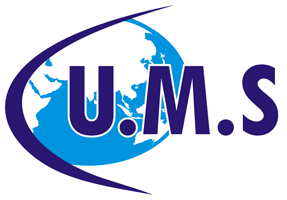QUALITY DISPUTE MEDIATION
UMSCPL can assist you in the technical aspects of the quality issues and/or technical issues relating to the Marine industry accepted Code of practice in bunker and also in the Insurance cargo claims. We can act as a facilitator to mediate as per the industry practice before you proceed for engaging a Solicitor.
UMSCPL mediators including mediators with the requisite shipping and insurance experience.
Mediation has struggled for acceptance in the shipping and insurance industries. These industries are beginning to realize its attractions and savings. However, the industry needs to become more than just aware of its benefits. Mediation needs to be incorporated into the industries’ daily conflict avoidance, conflict management and conflict resolution procedures. Mediation clauses now increasingly appear in commercial maritime contracts, like charterparties, insurance policies, LOF 2000 and even the new BIMCO Standard Ship Repair Contract. This rate of growth looks set to continue. The Joint Hull Committee (JHC) launched its new international hull clauses on 1st November 2002. Clause 53 of the new clauses states that underwriters and insured may refer any disputes to mediation as an alternative form of ADR to resolve disputes. The JHC, a joint initiative of the International Underwriting Association of London and Lloyds Underwriters Association, created a new set of hull insurance clauses to accurately reflect the needs and requirements of today’s shipowners and insurers. The marine insurance market has made itself familiar with the benefits of mediation and the process itself through its marine market mediation initiatives. A mediation option in the hull clauses is a natural progression. BIMCO has reviewed its “standard dispute resolution clause” which provides for the possibility of mediation. This is part of the move to increase the shipping industry’s awareness of new mediation techniques. The London Maritime Arbitrators Association has published the LMAA Mediation Terms (2002). A potential penalty for unreasonable behaviour is also a feature of the BIMCO clause and the LMAA terms, The BIMCO clause provides that if a party does not agree to an offer to mediate then this fact may be brought to the attention of the arbitration tribunal and taken into account when the tribunal is allocating the costs of the arbitration. The LMAA terms provide that the mediator may order a party whose conduct has been unreasonable to pay the mediation costs. Other major commercial players in the maritime world are considering mediation clauses as a standard feature of their contracts. Long term changes in the shipping and marine insurance industry are likely to support this trend. Mediation is not an easy option. It offers a forum for possibly tough negotiations and a broad brush resolution of a dispute. Mediation enables a party to resume, or sometimes to begin, negotiations. The very presence of a mediator changes the dynamics of the negotiating process. The mediator brings negotiating, problem solving and communications skills to the process. These skills are deployed from a position of independence and neutrality, making real progress. We can assist fully on the list of services we carry out.The majority of mediations do settle issues. For those that do not settle, mediation is still useful as it helps to reduce the issues in conflict, thereby paving the way for renewed negotiations. Some lawyers are trained to advise on mediation. Check your panel solicitor’s mediation experience. Insurers and those in shipping circles can afford good advice. We can recommend good solicitor’s as part of our experience.They are entitled to expect knowledgeable and authoritative advice on marinel procedure and the alternative forms of dispute resolution. For insurers, mediation appears to have little downside, but they are reluctant to turn to mediation. You cannot be half hearted about mediation. Claims and insurance managers must be ready to fully participate in the mediation process. To maximize cost savings mediate as early as possible. Parties in shipping and insurance disputes may not yet fully appreciate the comparative benefit of mediations.
UMSCPL message is simple. Give mediation a chance. Give it a chance at the earliest opportunity before heavy legal costs are incurred, for it is those costs that can prove the greatest obstacle to a settlement. In litigation there is only one winner. UMSCPL leave it to you to guess who that might be. In the case of mediation, everyone can be the winner, the costs can be small, the result may be achieved in a short passage of time and personal relations may be maintained. Mediation is not a universal panacea: it has its limitations and it is not always applicable. But where it is available, no conscientious litigator or party will likely reject it if you fairly raise the alternative, namely litigation. Any adviser who fails to suggest mediation may be inviting a professional negligence suit before too long.

